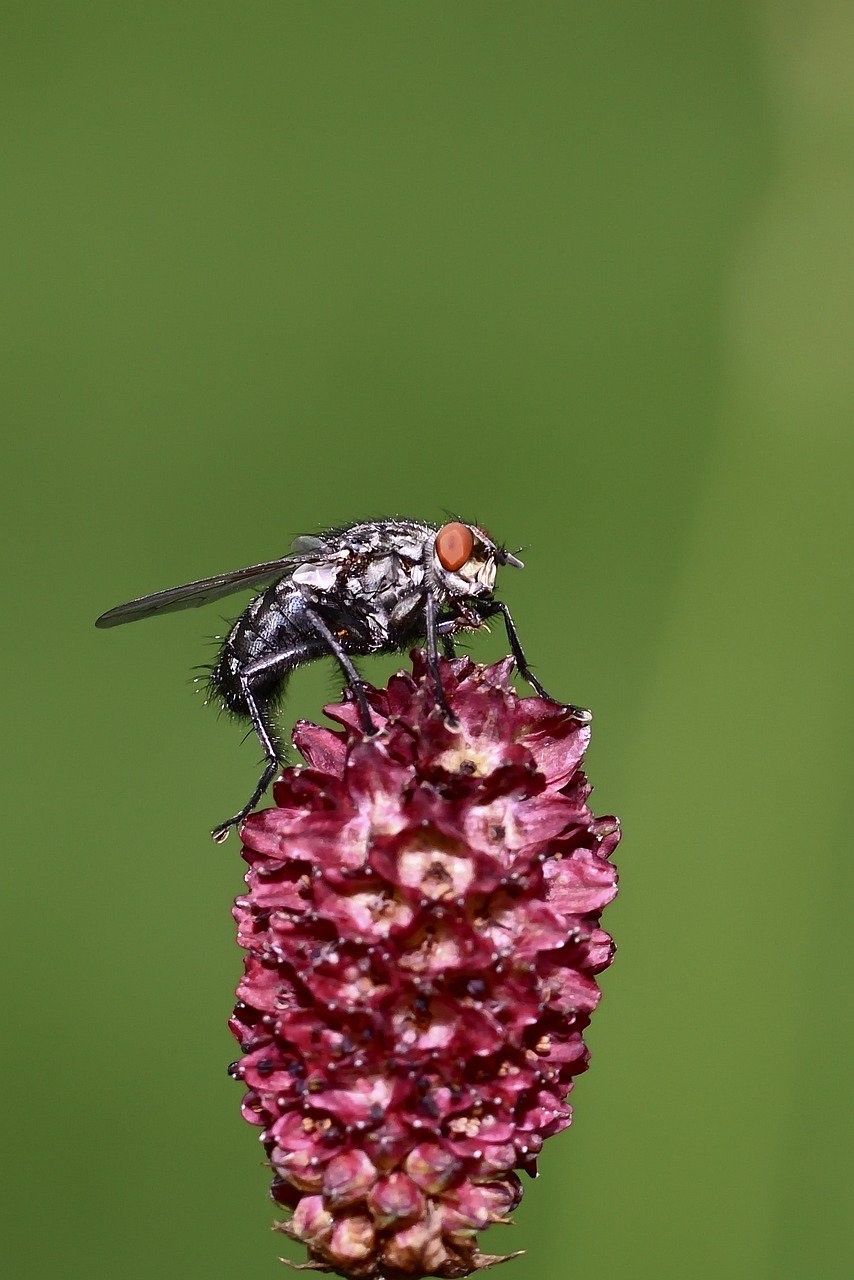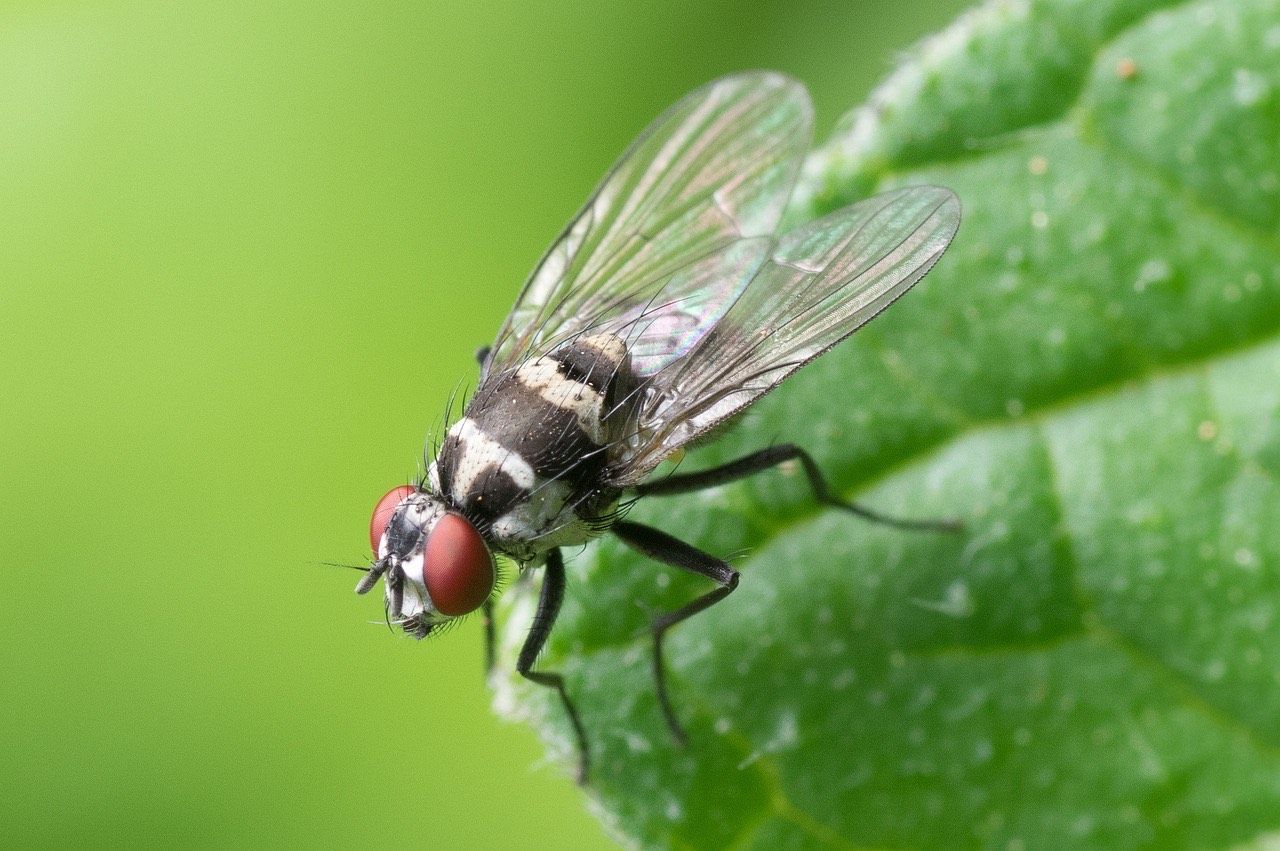At Faraja Pest, we're committed to protecting your comfort and peace of mind by expertly handling bed bug issues.

Flies
Flies are not just a nuisance; they pose significant health risks. Known for spreading diseases like salmonella and E. coli, flies can contaminate food and surfaces simply by landing on them. Their presence in homes, restaurants, and businesses can be a major source of irritation, disrupting daily activities and compromising sanitary conditions. In commercial settings, particularly those involving food preparation, a fly infestation can damage reputation and lead to health inspection issues.
Warning
A single fly can lay up to 500 eggs in its lifetime, which can hatch within a day. In warm climates like Kenya's, fly populations can increase rapidly.
Flies are attracted to food, garbage, and feces, making kitchens, waste disposal areas, and even pet areas prime targets for infestation. They reproduce rapidly, meaning a small problem can quickly escalate into a full-blown infestation. Flies are capable of entering through very small openings, making them difficult to keep out of homes and businesses.
How to Identify the Pest: Early detection of a fly problem is crucial. Look for:
- Increased Fly Activity: More flies than usual around food sources or waste areas.
- Larvae: Presence of fly larvae (maggots) in garbage, decomposing material, or moist areas.
- Nesting Sites: Flies often nest in warm, moist areas, so be vigilant in those locations.
Noticing these signs early can lead to more effective control of the infestation.

Dealing with a fly infestation requires more than just fly swatters or repellents. FarajaPest offers a comprehensive fly control program:
- Thorough Inspection: Identifying the types of flies, breeding sites, and the extent of the infestation.
- Customized Treatment Plans: Utilizing safe, effective methods to eliminate flies at all life stages.
- Preventive Strategies: Advice on keeping flies at bay through sanitation and habitat modification.
Our expert approach ensures not just temporary relief but a long-term solution to your fly problem.
Preventing future fly infestations involves:
- Sanitation: Regularly clean and dispose of garbage, and keep food covered.
- Eliminate Breeding Sites: Remove standing water and keep drains clean and clear.
- Seal Entry Points: Ensure windows, doors, and vents are properly sealed.
- Professional Monitoring: Routine inspections by pest control experts can help in early detection and prevention of fly problems.
Adopting these practices can significantly reduce the likelihood of a future fly infestation.